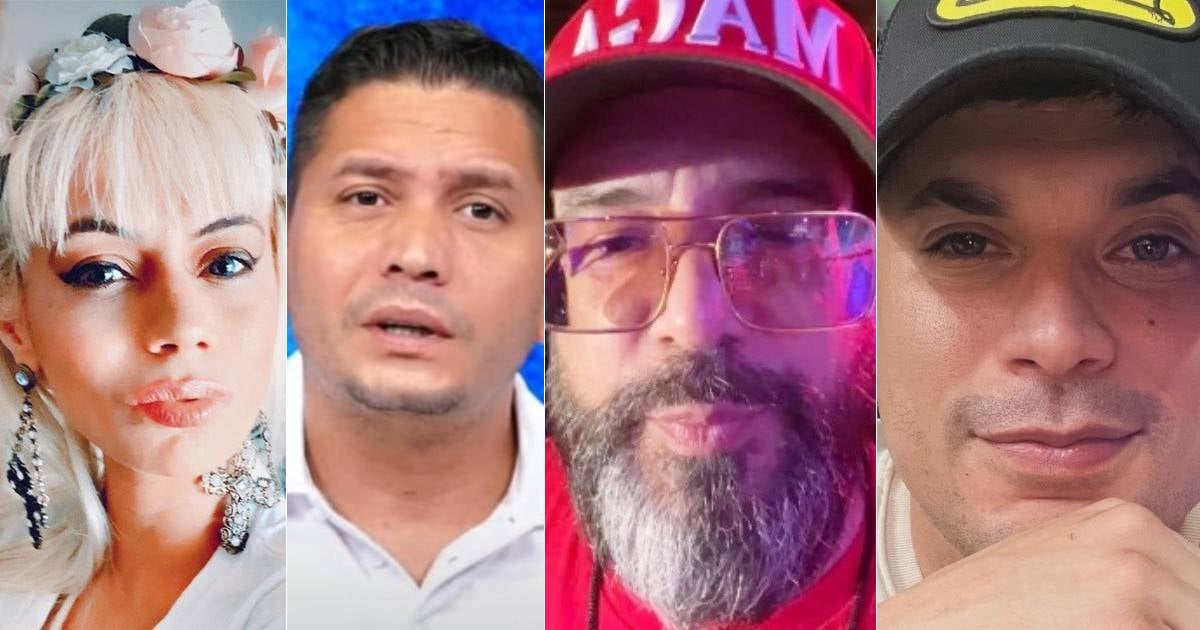Just ahead of the fourth anniversary of the July 11 protests, Cuba's socialist regime has updated its contentious National List of Persons and Entities Linked to Terrorism. This legal tool is seen by many as not only targeting alleged perpetrators of violent crimes but also criminalizing political dissent from those living in exile. The Ministry of the Interior's Resolution 13/2025, published Wednesday in the Official Gazette, now includes 62 individuals and 20 organizations accused by the regime of "terrorist acts," although no public evidence has been provided to support these claims.
Most of those listed are Cuban expatriates, predominantly residing in the United States, particularly Florida, who are involved in political activism, independent media, or the digital sphere.
New Additions to the List
Among the five individuals newly added to the list are Rolando Miguel Pérez Ruiz, Leordan Cruz Gómez, and Hamlet Pedraza Rivas, who reside in the U.S. and are accused of allegedly introducing weapons and engaging in sabotage. Also included are Armando Labrador Coro and Seriocha Humberto Fernández Rojas, members of the group Cuba Primero, accused of financing sabotage activities in Villa Clara and Havana. Additionally, the Cuban Republican Party, based outside the country, has been labeled a "terrorist" entity, bringing the total number of included organizations to 20, with groups like Alpha-66, Brothers to the Rescue, Cuban American National Foundation (FNCA), Cuba Primero, and the Assembly of the Resistance already on the list.
Exiles, Politicians, and Digital Activists
Familiar names on the list include Alexander Otaola, Orlando Gutiérrez Boronat, Ana Olema Hernández, Ramón Saúl Sánchez, Eliecer Ávila, Manuel Milanés, Ultrack, and Alain Lambert (Paparazzi Cubano). Many are influencers or outspoken critics of the Cuban regime with a strong presence in the exiled community. In several cases, the charges are based on events from the 1990s, 2000s, or 2010s, often with vague accusations of "financing," "organizing," or "inciting" actions against the state.
The resolution claims that all those included have been subject to criminal investigations and are "wanted" by Cuban authorities, adhering to national and international standards, though it lacks documentation to substantiate these claims.
The Reality of Inclusion
Despite the official tone and alleged severity of the charges, being listed has no legal repercussions outside Cuba. In 2024, Spain's Ministry of Foreign Affairs confirmed to CiberCuba that they have no official knowledge of this list and that there are no active alerts in Spanish airports against those named. This means many of the accused can continue traveling freely across Europe or Latin America, even though the regime labels them as supposed "terrorists."
One of the individuals previously listed and reaffirmed in this update, Alexander Otaola, host of the show "Hola Otaola," responded to his initial inclusion with irony, showing no concern: "Canel, look what I do with the extradition: I wipe my fotingo," he said in a video shared on his networks, holding a roll of toilet paper with a picture of leader Miguel Díaz-Canel. Otaola called the product "Canel Sanitary," using a commercial tone to mock the leader of the "continuity," blending humor, defiance, and disdain for the threat.
In December 2023, during the program "Razones de Cuba," the deputy attorney general and senior Ministry of the Interior officials discussed applying the new Penal Code to prosecute the accused, including penalties of up to 30 years, life imprisonment, or even the death penalty. They also mentioned Interpol red alerts against some individuals, yet no confirmation from the international organization was ever provided.
Despite everything, most of those targeted have vowed to continue denouncing the Cuban regime and refuse to let this list silence their voices or alter their activism.
A Political Tool for Intimidation
Human rights organizations and independent analysts have warned that the regime's use of the term "terrorism" aims more at intimidation than justice. By criminalizing exiles and digital figures, Cuban authorities attempt to silence dissenting voices and reinforce a narrative of external encirclement. The list's publication follows Cuba's reaffirmation on the U.S. list of state sponsors of terrorism and comes days after former President Donald Trump signed a memorandum that tightens U.S. policy towards the island.
During the document's presentation, senior officials from the Ministry of the Interior, the Prosecutor's Office, and the Foreign Ministry criticized the alleged inaction of the U.S. government, accusing it of harboring "terrorists" within its borders. Deputy Minister Josefina Vidal called it "cynical" for the U.S. to accuse Cuba of terrorism "when this country fights it."
The new list has been officially sent to the UN and notified to Cuban judicial, prosecutorial, and financial bodies, although its practical impact appears limited outside the regime's internal framework of control and repression.
Understanding Cuba's Terrorist List
What is the purpose of Cuba's National List of Persons and Entities Linked to Terrorism?
The list is intended to identify individuals and organizations deemed by the Cuban government as involved in terrorism. However, critics argue it's used to criminalize political dissent and silence opposition from exiles.
Who are some notable figures recently added to this list?
Recent additions include Rolando Miguel Pérez Ruiz, Leordan Cruz Gómez, and Hamlet Pedraza Rivas, among others, who are accused of various acts of sabotage and political activism against the Cuban regime.
Does being on this list have international legal consequences?
No, inclusion on Cuba's list does not have legal repercussions internationally. Many listed individuals can still travel freely across regions like Europe and Latin America.
